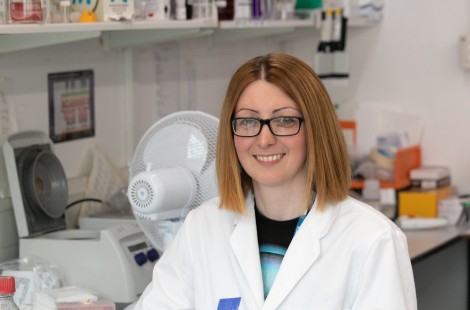
I have always been fascinated by the natural sciences. My undergraduate degree was pharmaceutics and, in particular, I was interested in the adverse effects of drugs on embryos, also known as teratology. This subject inspired me to pursue developmental biology and embryology at graduate level at Murray Edwards College, Cambridge University in 2008. This project brought new insight into gene regulatory networks governing early mesoderm patterning and paved the way to my first postdoctoral role in 2012 at the Massachusetts General Hospital, Harvard Medical School, where I studied mesoderm development and specifically genes important in heart development. On my return to the UK in 2014, I became interested in learning about immunity and cancer in two consecutive postdoctoral roles in the Ludwig Institute for Cancer Research at Oxford University and currently at the Department of Pathology at Cambridge. In particular, I am interested in using transgenic mouse models to understand the biology of a rare lymphoma known as anaplastic large cell lymphoma (ALCL). For instance, I am interested in understanding how the activation of NPM-ALK, an oncogene, is incompatible with the presence of T-cell receptors on T-cells in ALCL disease models and also how alternative signalling pathways and defective T-cell development programmes are utilised in this disease. My main interest is studying the biology of patient tumours using a technique known as “patient derived xenografting” (PDX), in which cells are grafted to immunodeficient mice and chemotherapeutic drugs are evaluated on the resultant tumours. In my view, this is one of the closest “bench to bedside” approaches. I also collaborate on a neuroblastoma drug resistance screen project. This study has made valuable insight in the mechanisms of drug resistance in neuroblastoma. I also supervise rotational PhD and undergraduate students in this role and have recently taken on contract lecturer duties in Pharmacology at Nottingham Trent University.
My research role at Cambridge and lecturing role at Nottingham Trent are of utmost importance to me and I very much enjoy research and teaching, and aim to obtain a full-time lectureship. What appeals to me about my work is the diversity of the fields of natural sciences that I am exposed to.
Research on paediatric cancers, needless to say, plays a vital role in improving the quality of life of cancer patients. Making insight into relapse cases of lymphoma and also studying the mechanism of drug resistance in lymphomas and neuroblastomas are pivotal, not only from a basic and translational sciences viewpoint but also to inform new therapies for clinical use.
In my opinion, resistance to drug-targeted pathways and “similar pathway bypassing” by cancer cells is a major therapeutic challenge. Understanding mechanisms of resistance and targeting these pathways remains to be a good counter strategy.
Natural sciences are the basis of all medical sciences and, in many ways, we basic scientists are the working force behind many new discoveries and novel drugs that improve and enrich medical sciences. Therefore, it is important to encourage the younger generations to pursue natural sciences and sciences in general. My advice to young women interested in this field is to believe in their abilities, aim high and never give up. There will always be obstacles but never let them discourage you. The sky is the limit.
Leila Jahangiri (Ph.D.)
Research Associate